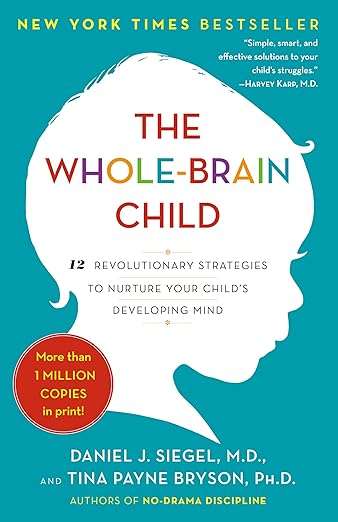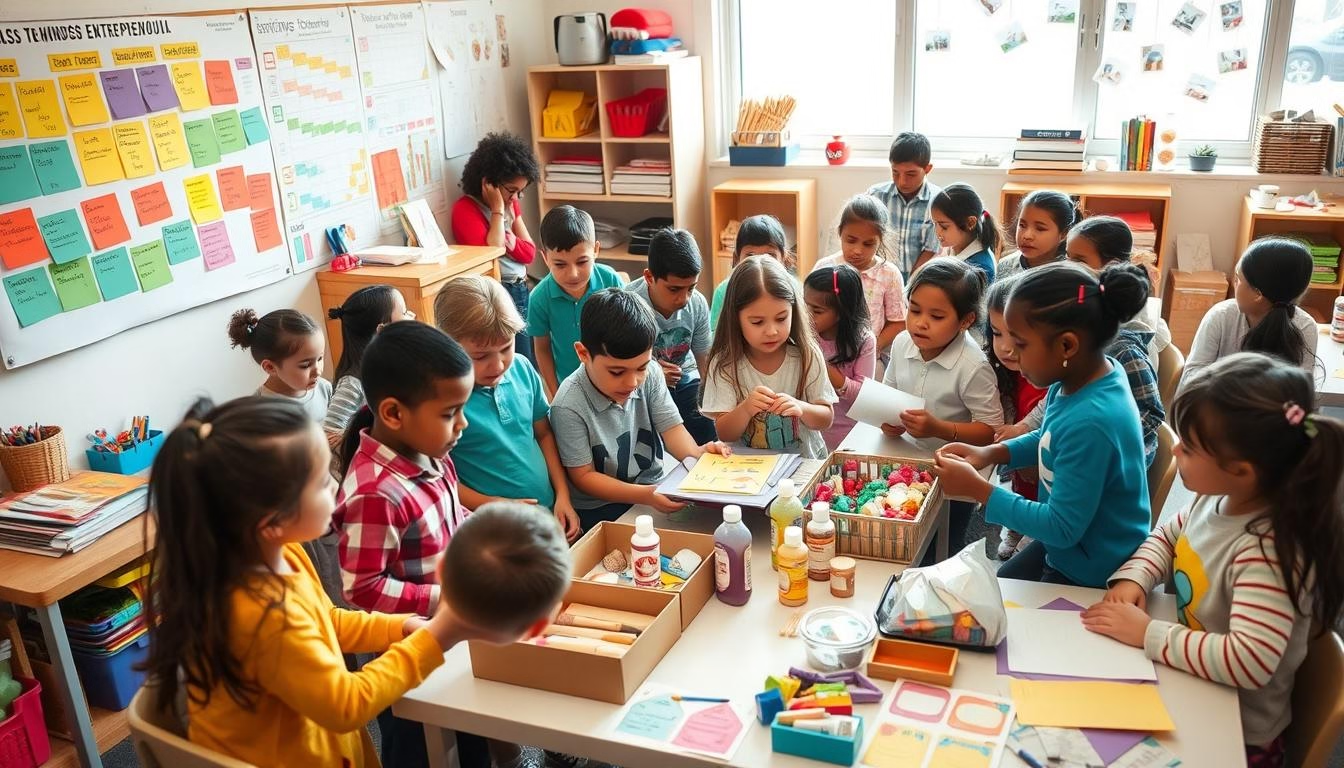As a parent, your main goal is to help your children grow and become confident, well-adjusted people. The journey of parenthood is both exciting and tough. But with the right advice and strategies, you can handle it well. This guide will share key parenting tips to help your kids thrive.
Parenthood is a deep experience that connects us to unconditional love. Seeing our children reach milestones is truly amazing. But, the way to raise happy kids comes with its own challenges. From understanding child development to building strong bonds, parenting can feel overwhelming.
Key Takeaways
- Understand the stages of child development to support your child’s growth
- Cultivate strong, nurturing relationships with your children
- Communicate effectively and build a supportive home environment
- Implement positive discipline methods to guide your child’s behavior
- Nurture your child’s emotional intelligence for lifelong well-being
Understanding Child Development Milestones
As parents, knowing about child development milestones is key. Tracking your child’s growth helps support their well-being and strengthens your bond. This section covers the main stages of child development, focusing on the role of attachment parenting.
Physical Development Stages
Your child starts a remarkable physical journey from birth. They hit milestones like sitting, crawling, and walking in their first year. As they grow, they improve their motor skills, becoming more independent.
Emotional Growth Indicators
Children also grow emotionally. Infants show basic emotions like joy and distress. These feelings grow into more complex ones as they age. They learn to manage their emotions, develop empathy, and understand themselves better, all key in attachment parenting.
Social Skills Development
Being able to interact with others is vital for children. Infants start with simple social actions like cooing and babbling. Toddlers and preschoolers then learn to share, cooperate, and make friends. These skills are essential for their happiness and fitting in with others.
Knowing these milestones helps parents create a nurturing space for their children to flourish. Embrace attachment parenting and join your child on their growth path.
Building Strong Parent-Child Bonds
Creating a strong emotional bond between parents and kids is key for a healthy family. Experts in attachment parenting say quality time and active engagement are crucial. They help build a secure base for the parent-child relationship.
Spending one-on-one time with each child is a great way to strengthen bonds. Activities like reading, playing games, or talking about their day are perfect. Giving your full attention shows your child they’re important and understood.
- Engage in activities that encourage physical closeness, such as cuddling, hugging, or snuggling on the couch.
- Actively listen to your child’s thoughts, feelings, and concerns, responding with empathy and validating their experiences.
- Establish consistent routines and rituals, such as bedtime stories or family dinners, to create a sense of security and stability.
Creating a strong attachment between parents and kids is vital. It sets the stage for healthy relationships in the future. By building trust, support, and respect, parents help their children grow emotionally and socially.
“Attachment is the deep and enduring connection established between a child and caregiver in the first several years of life. This connection profoundly influences every aspect of the child’s development.”- ZERO TO THREE, a nonprofit organization dedicated to healthy child development.
The quality of the parent-child relationship greatly affects a child’s growth. By focusing on family dynamics and attachment parenting, parents can create lasting bonds. These bonds will positively influence their children’s lives for many years.
Effective Communication Strategies for Parents
Good communication is key to strong family bonds and helps kids grow emotionally. Parenting experts say learning to communicate well can make the parent-child bond stronger. It also helps create a safe space for kids to grow and succeed.
Active Listening Techniques
Active listening is a vital skill for parents. It lets them really get what their kids are saying. By listening carefully, making eye contact, and responding well, parents can have deep talks with their kids. This makes kids feel important and helps them share their thoughts more easily.
Age-Appropriate Conversations
- Talk in a way that fits the child’s age and understanding.
- Choose topics that interest kids and spark their curiosity.
- Keep it simple for younger kids, avoiding hard words.
- As kids get older, start talking about more complex things to help them grow.
Non-Verbal Communication Cues
It’s not just what we say that matters. Non-verbal cues like body language and tone of voice are very important. Paying attention to these can help parents understand their kids better. This way, they can respond with kindness and understanding.
“The most important thing in communication is to hear what isn’t being said.” – Peter Drucker
By using these communication tips, parents can create a stronger bond with their kids. This makes a safe and supportive place for kids to grow and learn.
Creating a Supportive Home Environment
Creating a nurturing home is key for a child’s growth. This is especially true for stepfamilies, where family dynamics can be complex.
To support a child, stability and security are vital. Children do best when they feel safe, loved, and understood. Here’s how to achieve this:
- Implementing consistent routines and schedules
- Encouraging open communication and active listening
- Validating and addressing children’s emotions
In stepfamily homes, patience and empathy are crucial. They help reduce conflict and build harmony. Activities like family dinners or outings can also bring everyone closer.
It’s also important to make the home safe and loving. This means setting clear rules and ensuring it’s free from harm. A safe home helps children grow and feel secure.
Building a supportive home is a big job. It needs ongoing effort and understanding. By focusing on each child’s needs, parents can help them succeed and grow.
Positive Discipline Methods That Work
As parents, we all want our kids to be happy and well-behaved. But, traditional punishment doesn’t always work. Luckily, there are positive discipline methods that help kids learn self-discipline and cooperation.
Setting Clear Boundaries
Setting clear rules is key in parenting. Kids do better when they know what’s expected. By setting limits that fit their age, you can guide them without harsh punishments.
Natural Consequences
Positive discipline lets kids face the natural results of their actions. This way, they learn from their mistakes and take responsibility. For example, if they forget to clean their room, they might miss playtime until it’s done.
Reward Systems
Positive reinforcement is a strong tool in positive discipline. Using rewards like stickers or praise encourages good behavior. It helps kids feel good about themselves and their achievements.
The aim of positive discipline is to help kids grow into self-disciplined, responsible, and confident people. By using these methods, you can create a loving and supportive home for your family.
Balancing Parenting Styles and Approaches
Raising kids is both rewarding and challenging. Parents explore many parenting styles and techniques. Finding the right balance is key for a healthy, nurturing environment.
The authoritative style is often seen as the best. It balances setting clear rules with emotional support. Permissive parents are lenient, while authoritarian parents are strict but cold.
In co-parenting, finding common ground is hard. Open communication and compromise are essential. They help create a unified parenting strategy that benefits the child.
Helicopter parenting has been criticized for being too protective. It can prevent kids from becoming independent. It’s important to find a balance between nurturing and giving kids freedom.
“Effective parenting is not about perfection, but rather a continuous journey of finding the right balance between guidance and independence.”
Understanding each child’s needs is crucial. Adapting strategies and keeping communication open are key. By finding the right balance, parents can help their children grow and thrive.
Nurturing Emotional Intelligence in Children
Teaching emotional intelligence is key for a child’s future success. Parents can help by teaching empathy, managing big emotions, and building self-awareness. These skills are very important for kids.
Teaching Empathy
Empathy lets us understand and share others’ feelings. Parents can teach empathy by being kind themselves and encouraging kids to see things from others’ viewpoints. They can also help kids do kind acts.
Managing Big Emotions
It’s hard for kids to control their feelings, especially when they’re upset. Parents can help by letting kids know their feelings are okay. They can also teach them how to deal with problems and feel better.
Building Self-Awareness
Knowing your own thoughts and feelings is important. Parents can help kids understand themselves by encouraging them to think about their feelings. They can also support creative activities and a positive attitude towards learning.
By focusing on these areas, parents can help their children grow emotionally. This helps them deal with life’s challenges and connect with others. It also boosts their child development and happiness.
Essential Tips for Modern Parenting
Parenting today is different from before. It includes dealing with single parenting and stepfamilies. We’ll share tips to help families succeed in these new situations. This ensures a loving home for kids.
Embracing Single Parenting
Single parenting is rewarding but has its challenges. It’s key to manage time well, have a support system, and take care of yourself. Setting boundaries and talking openly with kids helps create a caring home.
Navigating Blended Families
Stepfamilies need patience, empathy, and clear talk. Building trust, respecting each other, and making decisions together is important. Activities that bring everyone closer can make the family stronger.
Mindful Use of Technology
Technology is a big part of family life now. Parents must set limits on screen time and online safety. Spending quality time together and being mindful helps kids use technology wisely.
| Parenting Scenario | Key Considerations | Practical Strategies |
|---|---|---|
| Single Parenting |
|
|
| Stepfamily Dynamics |
|
|
| Technology in Family Life |
|
|
By tackling modern parenting challenges, families can thrive. Whether it’s single parenting, blended families, or technology, these tips guide parents in the 21st century.
“The most important thing that parents can teach their children is how to get along without them.” – Frank A. Clark
Maintaining Work-Life Balance as Parents
Being a parent is rewarding but also very demanding. It often leaves little time for personal care. As working parents, finding a good work-life balance is a big challenge. But, with the right strategies, you can manage work and family life while keeping yourself well.
Time Management Strategies
Good time management is crucial for handling parenting and work duties. Try these tactics:
- Prioritize tasks and make a schedule to stay organized
- Give household chores and errands to other family members
- Do similar activities together to save time
- Stay focused and set limits on your time
Self-Care for Parents
It’s easy for parents to forget about their own needs in the chaos of daily life. Taking care of yourself is key to being a good parent. Make time for self-care like:
- Regular exercise or meditation
- Time for hobbies and fun activities
- Getting enough sleep
- Getting support from friends, family, or a therapist
Quality Family Time
Even with work and household duties, make time for your family. Set aside times like family dinners or weekend trips. These moments help strengthen your family bond and create memories.

By using these strategies, working parents can handle the work-life balance challenge. They can take care of their personal needs and family while keeping up with work.
Best Seller Book Recommendations
Conclusion
Raising happy, well-adjusted children is a journey filled with learning and growth. It’s key to be adaptable, patient, and always learning. Every child is different, so what works for one might not work for another. It’s important to stay open-minded and keep trying new things.
This guide has given you many tips and techniques to help. From understanding child development to teaching emotional intelligence, you have a strong base. Remember, parenting is a journey that never ends. By paying attention to your child’s child development, you can help them grow into happy, confident people.
Starting this journey means accepting that there’s no one right way. Trust your gut, work with your partner or support system, and focus on your child’s happiness. With patience, love, and a willingness to change, you can help your children succeed and reach their highest potential.







